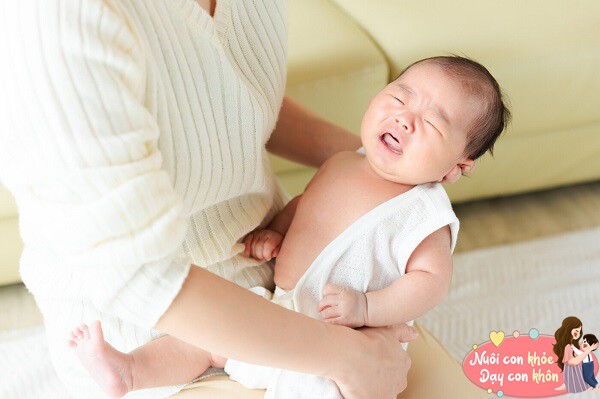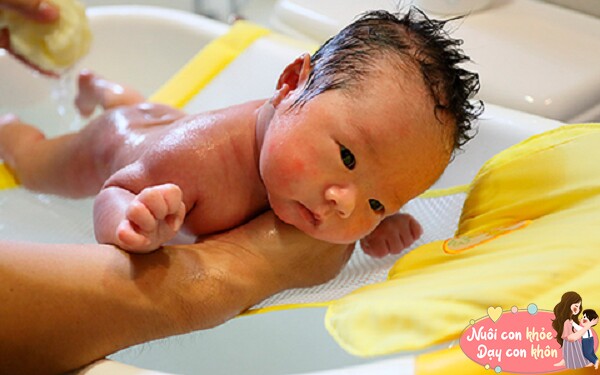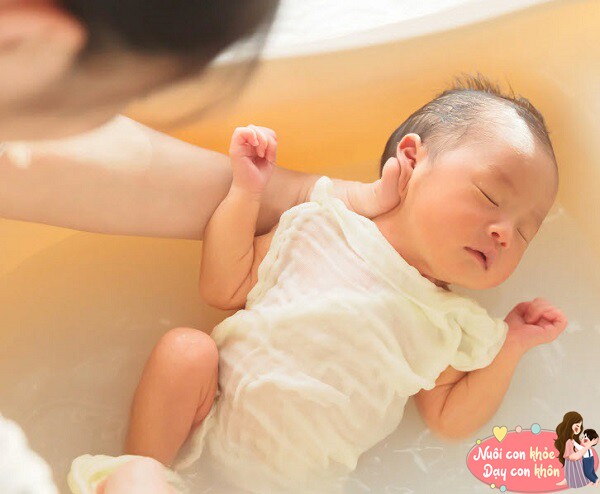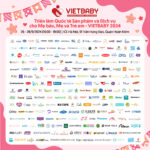A mother from Tianjin, China, shared her experience: She continued to bathe her child alone after the nanny left. However, the baby would throw up milk after each bath. Interestingly, the child seemed to not throw up when the nanny was present during bath time.
In reality, this was a warning sign from the baby, and misunderstanding it could be harmful. There are three common misconceptions about bathing newborns that many mothers are unaware of.

Feeding Milk Before Bathing
For infants under one month old, it is natural and essential to feed them frequently. They may need to be fed every hour and could breastfeed 8 to 12 times a day. This is a crucial phase in their development, where adequate nutrition is necessary to support their growth.
Apart from paying attention to the feeding schedule, mothers should also consider the timing of baths. Feeding milk within half an hour before bathing can easily cause the baby to throw up during bath time.

Feeding milk before bathing can cause the baby to spit up.
During bath time, the blood circulation in the baby’s body accelerates, which can lead to stomach compression and, consequently, milk spit-up.
To ensure the baby’s comfort and safety, mothers should avoid bathing their infants within half an hour before or after feeding. The ideal time to bathe the baby is about 1-2 hours after feeding, when their stomachs have partially digested the milk.
Additionally, creating a comfortable and warm bathing environment will make the baby feel more relaxed. Mothers can prepare bath essentials like warm water, soft towels, and bath toys to make bath time a fun experience for the little one.

Bathing Newborns Before Bedtime
When babies are sleepy, especially in the evenings, many mothers believe that a bath will help soothe and relax them, making it easier to fall asleep. While bathing can be relaxing, if not done properly, it may cause sleep-related issues.
After a bath, babies may feel more alert due to the stimulation from the water and surrounding activities. Their body temperature can also change, making it challenging for them to unwind and fall back asleep.

Avoid bathing newborns too close to bedtime.
Furthermore, if the bath is given too close to bedtime, the baby may lose out on crucial sleep time, leading to potential fatigue.
When babies don’t get enough sleep, they tend to cry frequently, showing signs of discomfort and stress. Inadequate sleep can result in daytime drowsiness, making them irritable and cranky.
To prevent these issues, parents should consider the timing of baths and maintain a consistent sleep schedule for their little ones.

Soaking Babies in Water for Too Long
Many mothers have the habit of soaking their babies in water during bath time, believing that it will help them relax. However, a baby’s skin is delicate and sensitive, and prolonged soaking can damage the thin protective layer of the skin, leading to dryness and irritation.
Apart from bathing, parents need to pay attention to other aspects of newborn care. Infants are fragile, and even a small mistake in their care can impact their health.

Avoid soaking the baby in water for extended periods.
For instance, choosing inappropriate bathing products or those with unbalanced pH levels can harm their skin. It is advisable to use baby-specific skincare products and always check the ingredients to ensure safety.
By avoiding these mistakes, mothers can ensure a happier and healthier baby. Providing a safe and nurturing environment will promote not only physical but also mental development.
Additionally, establishing a consistent bath routine from an early age is essential. Mothers can make bath time enjoyable by singing lullabies or playing with water, creating a sense of comfort and security for the baby.
Over 200 Brands Join Vietbaby Hanoi 2024’s Parenting and Baby Expo
The 4th International Exhibition on Products and Services for Expectant Mothers, Mothers, and Children (Vietbaby Hanoi 2024) is set to take place from September 26 to 28 at the ICE, 91 Tran Hung Dao, Hoan Kiem, Hanoi. The exhibition is expected to attract 20,000 visitors, all eager to explore the latest offerings in the world of pregnancy, motherhood, and child-rearing.






































